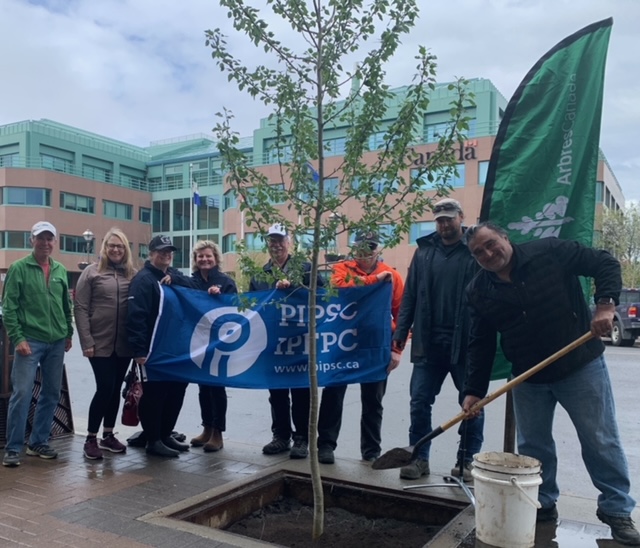As a seventh wave of COVID with highly transmissible variants is confirmed by public health officials, the Professional Institute of the Public Service of Canada (PIPSC) is calling on the Treasury Board to prioritize the health and safety of its workers.
Despite the increase in COVID cases and other indicators, many federal departments and agencies are continuing with return to workplace plans, with the bulk of them coming into effect immediately after Labour Day.
“Despite the seventh wave, return to workplace policies are still being rolled out,” said Jennifer Carr, PIPSC President. “We know our members are concerned about how their health and safety will be prioritized during this transition, and it’s the employer’s responsibility to ensure that it is.”
In June, PIPSC hosted three telephone town halls with members to discuss top issues, including a return to the workplace. During these town halls, many members expressed concerns about safety and a strong desire to continue working from home.
“Sixty percent of PIPSC members want to continue working remotely, and another 25% want to ensure their hybrid work arrangement is flexible. Our members have proven throughout the past two-and-a-half years that they can and will continue to be productive and engaged while working safely from home,” said Carr. “Given the state of the pandemic, we are urging the Treasury Board to prioritize their health and safety, and reconsider ongoing return to workplace plans.”
PIPSC is continuing to advocate for safe, flexible return to workplace policies for all members. Members that are required to return to the workplace and have concerns should visit our website for more information on the options available to them.



 It is with a profound sense of sorrow and regret that the Institute informs you of the untimely passing of our friend and colleague Kal Sahota, BC/Yukon Regional Director. Kal’s commitment to PIPSC members was deep and unwavering. We will miss him very much.
It is with a profound sense of sorrow and regret that the Institute informs you of the untimely passing of our friend and colleague Kal Sahota, BC/Yukon Regional Director. Kal’s commitment to PIPSC members was deep and unwavering. We will miss him very much. 


 It is with great sadness that the Institute learned that Judith King passed away on December 4, 2021.
It is with great sadness that the Institute learned that Judith King passed away on December 4, 2021.